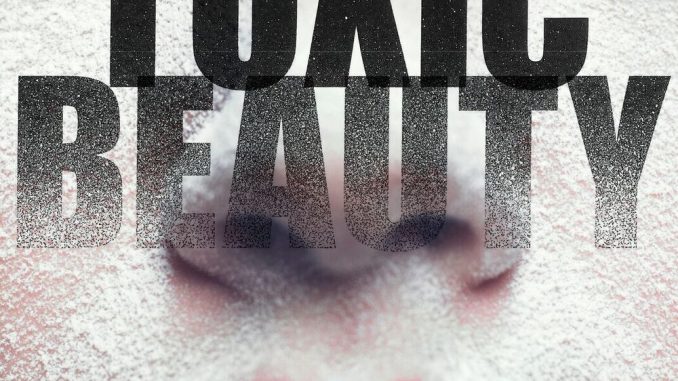
Have you ever thought about what ingredients are in the beauty products you use every day? The deodorant that is meant to make you smell sweet, or the lotion that helps keep your skin moisturized and firm? Almost everyone has a fond memory of their mother using Johnson & Johnson (J&J) baby powder after a shower. The film Toxic Beauty, directed by Canadian filmmaker Phyllis Ellis, reveals the hard truths of the beauty industry and dives deep into the scientific discoveries and personal stories of women who have come face to face with the realities of the unregulated cosmetic industry.
The film follows a class-action lawsuit against J&J, and the personal stories of women fighting for justice in a race against time. We follow the lives of multiple women who have used J&J baby powder their entire lives, inheriting this ritual while growing up watching their mothers apply it vigorously to their bodies after a shower. Now in their mid to late 40’s and 50’s, these women have barely survived ovarian cancer, a medical anomaly not present in their family’s medical history. It has been well documented that talc, the main ingredient in baby powder, is toxic to bodies as it contains asbestos and other heavy metals. It reminds us that society’s pressure on women to be fresh, flawless and wrinkle-free is slowly killing them.
The ingredients used in mass-produced cosmetics are unregulated by the government, such as phthalates and parabens: preservatives used in products to increase their shelf life. These ingredients are endocrine disruptors, meaning they disturb the production of hormones in the body, resulting in faster puberty development and early signs of menopause. Corporations have assured governments and consumers that they can self-regulate, but we quickly learn that this is not true; that they work hard to keep the truth about the ingredients in their products from becoming mainstream knowledge. Companies use the image of pretty women in the industry, women who are well known to us, women we trust, to sell these harmful products. They tell us that women will never be enough in beauty, skill and talent if we do not use the products that they say “do God’s work,” that keep us young and fruitful.

Audience members were shocked on multiple occasions during the screening, although the truth about a corporation’s misdeeds and their continued disregard for human life is not surprising. It is hard to come to terms with your own misguided understanding of toxic products and the push for people, especially women, to use products that harm.
As I walked out of the theatre, I saw a woman in the main hallway applying her lipstick as another woman teasingly scolded her for it. I asked the group how they felt about their own product use after watching the film. “I feel pretty good about it,” the woman said when I asked her how she felt about the film’s insights. “Still, this lipstick is my favourite.” Another woman said she was frustrated, a theme which is echoed by one of the women facing J&J head-on in a lawsuit against them. “I have two daughters, and they are reaching their teens. I worry for their safety, as I know they are to succumb to the push of cosmetic use to stay young,” said one man.
What can you do to combat the harmful chemicals in mainstream products while also caring for yourself and your skin? Well, if you’re looking to detox from the chemical soup that is the beauty industry, look no further than Peterborough itself. You will find all the items you need from Ritual Apothecary, located on Charlotte Street in the downtown core, owned and run by Nadine McCallen. I was lucky enough to attend the film viewing with Nadine, who is full of knowledge concerning locally-sourced ingredients and the benefits of natural ingredients in cosmetic products.
